Stephen Hayes's Blog, page 57
November 28, 2013
Eight years old
This blog is eight years old today, and here is a link to the first post. But WordPress is taking so long to load that it might be tomorrow before this gets posted.
http://methodius.blogspot.com/2005/11/seek-and-ye-shall-find.html
No, it’s not this blog, it’s my other blog, but WordPress was so slow tonight it took me nearly two hours to post this much.


November 21, 2013
Fifty years ago: the death of 3 award-winning writers
In the late night news on the SABC (South African Broadcasting Corporation) on 22 November 1963 the main news item was that Hilgard Muller had replaced Eric Louw as South Africa’s Foreign Minister. And they broadcast Muller’s speech to mark the occasion. In the other news that followed, they noted that US president John F. Kennedy had been shot.
There was no way that the SABC was going to allow Hilgard Muller to be upstaged by the death of a US president, or that their listeners’ minds should be distracted from the important National Party propaganda message in his speech. I suppose they judged, probably rightly, that if they had broadcast the news of President Kennedy’s death first, no one would have paid the least attention to Hilgard Muller’s speech.
But Kennedy’s death also upstaged the deaths of two other people, who, as writers, were better-known than he was.
Three award-winning writers died on 22 November 1963, perhaps the most notable such coincidence since Cervantes and Shakespeare both died (or at least had their death recorded) on 23 April 1616. The fact that one of the trio was John F Kennedy, who had won a Pulitzer prize for Profiles in Courage, served to obscure the death of Aldous Huxley in California and CS Lewis in Oxford, and their obituaries were tardy. Fifty years on, a slew of books and TV programmes have inevitably been produced to mark the half-centenary of the presidential assassination, but this time one of the British authors has not been entirely eclipsed.
via CS Lewis and Aldous Huxley’s afterlives and deaths | Books | theguardian.com.
At that time I was a student at the University of Natal in Pietermaritzburg, studying for the end-of-year exams. I knew both Huxley and Lewis primarily from their science fiction writings. I had read Huxley’s Brave new world in a Penguin edition when I was at school. In those days Penguin books didn’t have fancy eye-catching covers; they were plain orange, white and black. It was the title that caught my eye. We had been reading Shakespeare’s The tempest in class, and Miranda, brought up on a lonely island by an eccentic father, on meeting people from the outside world, exclaims, “O brave new world, that has such people in it.”
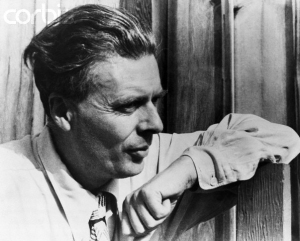
Aldous Huxley
Huxley’s novel was set some 600 years in the future, in a dystopian society in which mass-produced people venerated the pioneer of mass-produced cars, Henry Ford.
At about the same time I read C.S. Lewis’s space trilogy, beginning with Perelandra. That did have an illustrated cover, and both the cover and title intrigued me.
When I left school and went to Wits University Brave new world was one of the English set works, as was another dystopian novel, William Golding’s Lord of the flies. The Wits University English department seemed to be big on dystopian novels at that time. I can’t remember if Orwell’s 1984 was also on the list, but I certainly read it about the same time, as it seemed to indicate the direction in which South Africa was heading.
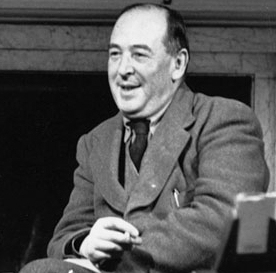
C.S. Lewis
At the University of Natal the English department, rather to my disappointment, had different priorities, so I hadn’t read any more of Huxley, and they were wedded to the school of literary criticism headed by F.R. Leavis, who was opposed to C.S. Lewis in many ways, so I didn’t hear much more of Lewis either. My mother had some of his books on Christian apologetics, which I found rather dull. A fellow student showed me a book called The lion, the witch and the wardrobe and recommended it, but I didn’t pay much attention, as I wasn’t into children’s books at the time.
It was only a couple of years later that I read The lion, the witch and the wardrobe, and then went on to read the rest of the Narnia stories as well. And it was then that I discovered that C.S. Lewis had died two years earlier.
After reading Brave new world about 4-5 times between the ages of 16 and 18, I re-read it some 35 years later, at the age of 54, and found it rather trite and disappointing. What had seemed a brilliant novel to me as a teenager and turned dull in middle age.
But I’ve re-read C.S. Lewis’s fiction several times over the years, and the last reading is as enjoyable as the first, sometimes even more so, because I see things that I never saw before.
I never read anything written by J.F. Kennedy, but as everyone seems to ask “What were you doing when you heard President Kennedy was shot?” here is an extract from my diary for 22 November 1963, when I had spent the evening in my room in the university residence (William O’Brien Hall) studying for the exams:
(I) typed out a lecture I had missed. I finished it at quarter to nine, and went to have coffee, and a lot of people were saying that President Kennedy of the USA had been shot three times. So I went back to listen to the news, and lo and behold, it was reported that the head of the diplomatic mission in London, Dr Muller, had been appointed Minister of Foreign Affairs, in place of Eric Louw, who has resigned, and they broadcast the speech made by this Muller creep. And then the announcer said he had just been given an urgent newsflash, saying that President Kennedy and the governor of Texas had been shot in a car, in Dallas, Texas, and that they had been rushed to hospital. Considering that it was common knowledge here in Maritzburg twenty minutes previously, it seems that the Broederbond-dominated SABC considers the speech of the new Minister of Foreign Affairs more important. Oh well, perhaps it is, but I don’t suppose he will be better than Louw. It reminds me of the shooting of Dr Verwoerd — it is no way of settling political arguments. No, I was wrong, about the SABC — this time. At five to ten John Stewart said that Kennedy was dead. John Daniel said he had heard it on the Voice of America. Five minutes later it was broadcast over the SABC, and they observed a minute’s silence, and now they are giving a eulogy. It seems that the days of the Wild West are not yet over, and it is still a common thing. Verwoerd and Lumumba in 1960, Casin, Diam and Kennedy in 1963, and Bandaranaike of Ceylon was assassinated not long ago. And the only thing that stands out about Kennedy in my memory is the balls-up he made in Cuba last year. It seems too hypocritical, considering the American atomic bases in Turkey, that they should object to Russian missiles in Cuba. But I was glad when he became president, because he was a Catholic. Prejudice, I suppose, but what would Nixon, a Quaker, have done — abolished the army? Probably not. So that made them almost equal.
So much for my opinionated 22-year-old self.
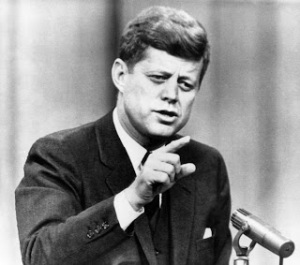
US President J.F. Kennedy
Five years later Nixon did become President, and five years after that the Watergate scandal broke. And still the American public re-elected him. But we South Africans don’t have much room to talk — we elected Zuma.
But of the three authors who died on that day, the one who has had the deepest and most lasting influence of my life has undoubtedly been C.S. Lewis.
If anyone reading this is interested in a discussion of Lewis’s life, works and literary influence, or that of his fellow members of the Inklings literary group, I invite you to join us on the Neoinklings discussion forum. which you can find at http://groups.yahoo.com/group/eldil/. To subscribe to it, send e-mail to eldil-subscribe@yahoogroups.com, but it is worth also visiting the web site, as there are facilities for uploading files and photos, creating polls and databases and more.


November 20, 2013
The weirdness of Pope Francis
The Roman Catholic periodical The Tablet has a report on a debate in the Church of England’s synod on the ordination of women as bishops. Among other things, the report said:
A number of speakers pointed to Pope Francis as an example of progressive leadership.
Canon Rosie Harper, who supports women bishops, said: “Pope Francis has got it – he’s stopped judging people and started loving them, and Catholic church attendance is rising. Stop being weird and vote yes.”
via The Tablet – News.
Macrina Walker responded on Twitter “Invoking P Francis in support of women bishops strikes me as dishonest, instrumentalist & ultramontanist – & absurd!”
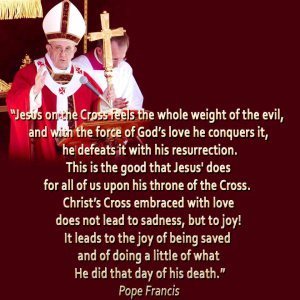 And goes on to say, “I seem to recall one of the Fathers saying that the desire to rule is the mother of all heresies
And goes on to say, “I seem to recall one of the Fathers saying that the desire to rule is the mother of all heresies  “
“
I rather hope that she will go on to expand on this in a blog post, and if she does I’ll link to it.
I may be wrong, but I get the impression that the Roman Pope Francis is beginning to suffer from a carefully-cultivated media image (cultivated by the media, not by him) for saying things he never said, and promoting things that he never had any intention of promoting.
And I suspect that this is because the Western media, and their owners, find the things that he has said are a little too uncomfortable, so they prefer to try to draw the public’s attention away from them by creating a fake image. It is the reality that is too weird for them to take.


November 16, 2013
The legacy of apartheid
There’s an interesting blog post on the legacy of aparheid here, which says that the Democratic Alliance, the biggest opposition party in parliament, refuses to acknowledge it.
The DA, redressing the legacy of apartheid, The Law of the Elephants and the Justice of Monkeys | Mukoni Ratshitanga: The legacy of apartheid is exactly what the DA refuses to acknowledge.
And the same post also notes that”
the Democratic Alliance (DA) has opposed every government policy intervention to redress the legacy of apartheid on grounds that the policies offend against principles of liberalism
Which suggests that the DA is not the heir to the legacy of liberalism, as it sometimes likes claim.
But though there is a lot of talk about the legacy of apartheid, no one really seems to pay much attention to what it is.
The DA may deny that it exists, but some ANC leaders use the legacy of apartheid as an excuse for many of their own failings, and that is just as bad. The ANC has had nearly 20 years to deal with the legacy of apartheid, and, in some areas, has done far too little to remedy it.
There are two feeble excuses for political nonsense that I’m tired of hearing:
Don’t blame us for these problems, it’s because of apartheid.
Apartheid ended 20 years ago, so it can’t be blamed for our problems.
That may seem contradictory, but it isn’t. I’ve written about all this before, here, and so I see no need to repeat it all now. I just thought that Mukoni Ratshitanga’s blog had some good things to say about it, and that it is worth reading.
So I would suggest a couple of other propositions:
Apartheid did leave a legacy of evil and it still affects us today
That legacy isn’t what most loudmouthed politicians seem to think it is


November 9, 2013
When the Church apologized.
 Reblogged from Out of Egypt..:
Reblogged from Out of Egypt..:

On the 15th of September in the year 1998 the Greek Orthodox Church of Alexandria sent out an apology. Here is what they wrote,
“The Holy Spirit has enlightened the gathered members of the Holy Synod of the Patriarchate of Alexandria and all Africa, under the leadership of H.B. Petros VII, Pope and Patriarch of Alexandria and all Africa, more than a century since Saint Nektarios, the great Teacher and Father of the Holy Eastern Orthodox Church was expelled from the Church of Alexandria, to reach the following decision:
St Nektarios of Pentapolis is one of the saints of Africa, yet was treated unjustly by the Church during his life on earth.
November 8, 2013
The dissing of the humanities
Twenty years ago, between 1990 and 1994, a new South Africa was taking shape. Talk of “transformation” was in the air, and some of us in the University of South Africa (Unisa) thought there was an opportunity to contribute to the transformation of the university from a Broederbond institution into a real university, and getting academics to produce better and more useful study material would also make our task as editors easier.
The Editorial Department tried to contribute to this by arranging a series of seminars on course design, and the first of the series was held in November 1993 at a new facility at Unisa Park in Irene. Most of the arrangements had been made by Sam van den Berg, then the head of the Editorial Department, and Glynn Meter, who had found Fred Lockwood of the Open University in the UK. and invited him to lead the seminars, which lasted for three days.
The seminars were generally successful, and both the academics and members of the Editorial Department who attended were enthusiastic about them, and left with plenty of ideas for improving their courses. The university administration, however, which was still dominated by the old Broederbond mentality, thought otherwise, and thought that the Editorial Department was exceeding its brief (or remit, as the Brits say) by arranging the seminars. No more seminars were held, and a couple of years later Sam van den Berg was fired for refusing to accept inferior study material from the Education Faculty, and sending it back to the lecturers.
I was a little disappointed, however, when Fred Lockwood disparaged the humanities, and said that he would take as an example a course on something useful and more practical in the real world — the production and and marketing of cosmetics.
Twenty years later that remains my predominant memory of his course — that he thought the humanities were useless and that useless fripperies like cosmetics were useful. Even the Communists’ obsession with steel production was better than that.
The trend represented by Fred Lockwood, however, seemed to be the main trend in Western and thus globalised culture. The disparaging of the humanities continues.
This could be seen in the categories of web sites that showed links to different blogs, or other web sites. For example, Amatomu, a South African blog aggregator, had the following categories:
News & politics
Business
Technology
Entertainment
Sport
Life
As a result of complaints from several people who thought that their blog posts did not fall into any of the above categories, a couple of new categories, Humour and Religion, were added. But where do you put books and literature, language, history, or the humanities generally?
The same used to be true of an international site, Digg. That has changed now, and Digg’s categories seem to be hidden from the users. But when they could be seen, there was no place in them for the humanities.
But there are also signs of a backlash — Study Theology, Even If You Don’t Believe in God – Tara Isabella Burton – The Atlantic:
Several of the great Medieval universities, among them Oxford, Bologna, and Paris, developed in large part as training grounds for men of the Church. Theology, far from being anathema to the academic life, was indeed its central purpose: It was the “Queen of the Sciences” the field of inquiry which gave meaning to all others.
And something of this could be seen in some of the initial efforts made by Unisa to transform itself for the new South Africa. The Unisa top management consisted predominantly of pale males, and appointments had to have at least tacit Broederbond approval. But, realising that they times they were a’changing, they began to look around for some people who did not fit the mould. And where did they find them? In the Faculty of Theology, that’s where.
The Faculty of Theology was the smallest in the university, but it had to see at least three of its most talented academics poached to go into the university administration, because they were the only qualified black people available. As a result the faculty was deprived of some of its best teachers and researchers, but it nevertheless underlines the point made in the aritcle cited above: that theology was and still is “the field of inquiry which gave meaning to all others.”
Fred Lockwood’s approch to education was pragmatic. There’s little money to be made from theology, or history, or Latin or literature. There is more money to be made from making and selling cosmetics, therefore universities should teach about that.
And, under President Jacob Zuma’s leadership, South Africa seems to have been following that pragmatic path. Unlike his immediate predecessors, who stressed ubuntu (humanity), Zuma and his associates seem to be more interested in money than in ubuntu. So the dissing of the humanities is likely to continue, and ubuntu will be a forgotten dream.[1]
Notes
[1] I am aware that “dissing” as a verb is derived from “disrespect”, but I’m old enough to still regard “disrespect” as a nound, and not a verb, but it fits the verb “disparage” equally well, if not better.


November 3, 2013
Tales from Dystopia XV: When Vorster came to Maritzburg
Fifty years ago today, B.J. Vorster, then the South African Minister of Justice, came to speak at a National Party meeting in the Pietermaritzburg City Hall. Pietermaritzburg was probably the centre of white opposition to National Party rule, and so Nationalist politicians who went there in the early 1960s were venturing into enemy territory.
Dr Verwoerd, then Prime Minister, had been to speak there a couple of years previously, and the meeting ended in chaos. His car had to be sneaked in by back routes to avoid student demonstrators and the meeting itself was disrupted by Union Jacks showering on to the stage,, followed by bags of flour. The opposition was quite overwhelming.
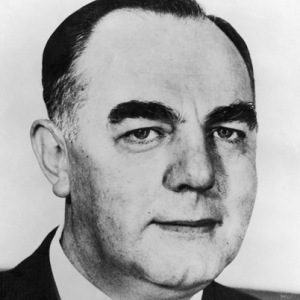
B,J, Vorster
Only two short years later, the opposition was much diminished. Vorster had made a big impact as Minister of Justice. Appointed after the 1961 general election, he quickly established a reputation for kragdadigheid (mightydeededness). He passed two General Laws Amendment Acts, in 1962 (the “Sabotage Act”) and in 1963 (the “90-day detention Act”) which drastically increased the powers of the police (and his own power) over ordinary citizens, and turned South Africa into a fully-fledged police state.
The Sabotage Act gave him the power to increase the severity of banning orders to include house arrest. The 90-day-detention Act of 1963 gave any police officer of the rank of Lieutenant or above to detain anyone for up to 90 days without charge or trial. After 90 days they could be released and redetained.
At the time I was a student at the University of Natal in Pietermaritzburg, and many students saw parallels between what was happening in South Africa and what had happened in Nazi Germany in the 1930s, when the Nazis were passing more and more repressive laws.
I remember sitting in a cafe having coffee in downtown Pietermaritzburg when the General Laws Amendment Bill was being debated in parliament. I had been reading Dietrich Bonhoeffer’s Letters and papers from prison. I looked the traffic in the street and the people walking around town, shopping and doing their business. It all looked so utterly ordinary. And I thought so it must have looked in Germany 30 years before. This was what it was like to live in a country that was turning into a police state. Nothing dramatic, nothing extraordinary. No tanks coming down the streets. No “Big Brother is watching you” signs. Just humdrum everyday life, people keeping calm and carrying on. The banality of evil.
I’ll tell the story by an extract from my diary of the day, followed by some explanatory notes.
Monday 4 November 1963
I went to see the bishop, but was told he was in Newcastle. I had a letter telling me about a School of Prayer he had conducted, and how he had talked about God to an atheist girl of 13.[1]
In the evening I went down to hear John Balthazar Vorster, the Minister of Justice. I went down with Maeder Osler, Gavin Stewart and Dizzy Drake, and we went and sat up in the gallery. There was a big mob of people we knew there — John Lloyd, Chris Roering, Harry Wilson, Jasper Cook, John Aitchison and many more, mostly from varsity, including Darrell Wood, Henry Bird, Richard Thatcher, and members of staff — Cake Manson, Saul Bastomsky and Glenn Culpeper.
Before the speakers came in there was some shouting across the hall. Some people on the other side shouted “Vrystaat, and we shouted “Natal”, although some thought we should have made it a refined and elegant “Natal”. When the speakers came in most of the audience stood and clapped. The left — mostly up in the gallery with us — sat and booed. Then we all stood and sang the national anthem.
The leader of the party in Natal, a guy called Potgieter, made a speech which sounded like a sermon. Then Vorster stood up and spoke. About 30 people in the gallery stood up and gave the Nazi salute, shouting “Heil Hitler! Heil Vorster!” The tough men the Nats had stationed behind us pulled one guy back into his seat, and he got up again and shouted “Heil Vorster!” He was pulled back several times and it nearly started a fight, but a deacon of the Dutch Reformed Church stopped it — blessed are the peacemakers!
Vorster began to speak. He said he wondered why the West didn’t support South Africa, and told people to take no notice of the vocal section of the audience. He said that there was a building on the hill, the last bastion of liberalism in Natal, but already there were cracks in it. He had, he said, 150 signatures of students who supported his action against Nusas.[2] He invited them to come on to the platform so that he could welcome them, but none did.
He then said that the trouble about South Africa overseas was that misinformation was being propagated deliberately. Lloyd shouted “by Frankie Waring”.[3] Then he went on to talk about the United Party, and the resignation of Odell and Groenewald. He said that Douglas Mitchell had said that if a few fleas fell off it made no difference to the dog, but there were so many fleas that the United Party must be a flea-ridden dog. Lloyd shouted, “Look where the fleas are going to.”[4]
Vorster said that the United Party was dead and that it must eventually come to direct opposition between the conservative National Party on the one hand and the Progressive and Liberal Parties on the other, both of which were liberal — two horses harnessed to the same cart. He said that the vocal section of the audience had their own regiment — “Luthuli’s Own”, and we all shouted “that’s us”, and “Luthuli for President”, and cheered.
He read out of a Nusas pamphlet, and it was so twisted that I didn’t find out until after the meeting what he had been referring to. He talked about communists, and trying to support communists and South Africa’s image overseas. It was actually an appeal to other unions of students to contribute towards a fund for students and lecturers who were arrested for political crimes, to help pay for their legal defence and support their families. At one stage Lloyd shouted, “That’s twisted”, and Vorster said, “My friend who shouted ‘that’s twisted’ can come down and read it for himself it he wants to”. Lloyd went and sat on the platform and Vorster went on about “little pink liberals”. At the end, after Vorster had said that a part of the Nusas pamphlet referred to obtaining the best legal defence even in corrupt courts was an attempt to smear South Africa’s name overseas. Lloyd asked if the packing of the Supreme Court to get the Coloured voters off the roll was not a corruption of justice. He asked a couple of other things as well. Vorster replied by asking Lloyd if he thought our justice could be bought, and didn’t give a straight answer to his other questions.
Sammy Osler asked why Vorster had told lies about Nusas, and said he was prepared to substantiate his arguments, but the chairman took no notice. Then someone shouted, about the statement made by Vorster in 1942 — “We stand for Christian Nationalism. In Germany it is called National Socialism in Italy Fascism, and in South Africa Christian Nationalism”.
He asked if Vorster was prepared to withdraw that statement. Vorster did not reply. The chairman said, “What do you know about it, you weren’t even born then”, and closed the meeting.[5]
Outside a guy asked Maeder Osler if he was prepared to have a discussion of his views. Sammy said yes, and the guy said, “Let’s go round the corner and fight it out.” Sammy said he defended his views with words, and if he couldn’t do that they weren’t worth defending, but he offered to beat the other guy up if he liked, and a Gestapo guy called van Rensburg said “Come on now, Maeder, don’t fight” and we went off. Van Rensburg seems quite a nice guy. We went and had coffee at Gavin Stewart’s place.[6]
Only two years before the position had probably been reversed, with about 30 National Party supporters in a city hall filled with opponents. Two years later, in 1965, Verwoerd returned to Pietermaritzburg in triumph. There was no vociferous opposition, and an adoring crowd hung on his every word. Those who disagreed kept quiet. In Natal, at least, white opposition to the National Party had collapsed almost completely in the four years between 1961 and 1965.
______
This is one of a series of posts called Tales from Dystopia, on personal experiences of life in South Africa in the time of apartheid.
Notes and References
[1] The Anglican Bishop of Natal, Vernon Inman, had asked me to go and see him.
[2] Nusas was the National Union of South African students, whose leaders were often critical of National Party policy.
[3] Frankie Waring was the National Party Minister of Information.
[4] The United Party (UP) was the main parliamentary opposition party, though it did not actually oppose the General Laws Amendement Bill. Douglas Mitchell was the Natal leader of the UP, and Odell and Groenewald were two UP members of parliament who had crossed the floor to join the Nats.
[5] The one who asked the question about whether Vorster still stood by his statement made inj 1942 was Saul Bastomsky, a lecturer in the Classics Department at the university, whose family had earlier fled from Lithuania. Saul Bastomsky was himself banned in 1965
[6] Maeder (Sammy) Osler was a rugby player and president of the Students Representative Council at the University. He later became president of Nusas.


November 1, 2013
Calling Orthodox Deacons
For a while now I’ve been thinking that it would be good to communicate with other Orthodox deacons. Sometimes there are questions I want to ask, and sometimes there are ideas that I’d like to ask others about.
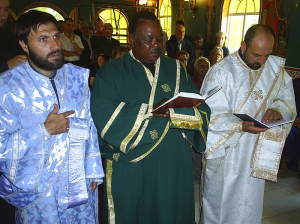
Three deacons
I checked to see if there was an online forum for Orthodox deacons, and was glad to see that there was an Orthodox_Deacons mailing list on YahooGroups. I applied to join it, but there was no response. The last message was posted there more than two years ago, and attempts to contact the moderator have proved futile. It would be nice if it could be revived, but unless one can contact the moderator there is not much chance of that.
It might, however, be possible to start another mailing list if there is enough demand for it, and so I’m asking any Orthodox deacons who might be reading this to let me know in a comment below, or in some other way, whether they think it is a good idea, and if you would be interested in taking part.
It would primarily be an English-language list, but deacons from anywhere in the world who can communicate in English would be welcome to take part.
I have found that the ministry of deacons tends to be neglected. Parishes often say that they are short of priests, but I’ve never heard a parish say it is short of deacons. Bishops say that their dioceses are short of priests, but they rarely say that they are short of deacons. For anyone interested, I’ve written about this in another blog post at Deacons and diaconate | Khanya.
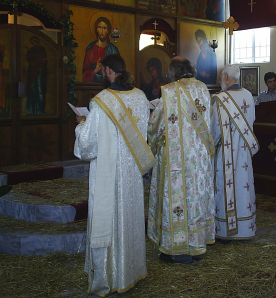
Another three deacons
I hope that on such a mailing list we would be able to share information about resources that would be useful for the ministry of deacons, and news of what deacons in different places are doing.
So if you are a deacon, and would be interested in joining such a list, please e-mail me: Deacon Stephen Hayes, or you can leave a comment in the comments section below. And please mail or tweet or otherwise pass on this link to other deacons you may know. You should be able to do this by clicking on one of the buttons below. Even if you aren’t a deacon, and you’ve read this far, you can still pass this on to some deacons that you know.
And one last thing: if you are on Twitter, and tweet anything that may be interesting or useful to deacons, or news about diaconal ministry, if you use the hash-tags #deacons or #diaconate, they will probably end up in a weekly digest of Twitter links called #Diaconate. You can click to see a sample. It will only collect tweels with links to web pages, and as a weekly digest it can be quite useful,
Update
Since several people have expressed interest in such a forum, it has now started. It is called Orthodox Diaconate.


October 20, 2013
Visitors from afar
Last week we had some visitors from elsewhere: a bishop and priest from the Former Yugoslav Republic of Macedonia (FYROM) and a priest from the USA.
Every year a Serbian bishop comes to South Africa for the patronal festival of the Church of St Thomas the Apostle in Sunninghill (which falls on 6/19 October), and this year it was the turn of Bishop David of Stobi, who was accompanied by Deacon Mark. They arrived on Wednesday, and several people gathered to meet them at the church for a Doxology, followed by lunch.
On Saturday at Vespers there were several clergy from our Archdiocese present, and afterwards Bishop David told us something about the difficulties of the church in FYROM.
Some of the clergy who were present at the patronal feast of St Thomas the Apostle Church in Sunninghill: Bishop David of Stobi, Fr Pantelejmon the p[arish priest of St Thomas, Deacon Paul, Deacon Stephen, Fr Markos and Deacon Mark from Skopje
The Archbishopric of Ohrid became the centre of the Orthodox mission to the Slavs started by SS Cyril and Methodius in the 9th century, but was subject to the changing political fortunes of the region. The Archbishopric was abolished by the Ottoman Turkish rulers in 1767, and annexed to the Patriarchate of Constantinople, presumably because the Turks wanted Chrisdtin leaders where they could see them, in the capital of their empire. Ohrid became part of Yugoslavia after the First World War, and under the pastoral care of the Serbian Orthodox Church, and in 1967 the Archbishopric of Ohrid was restored, but the communist government of Yugoslavia encouraged its leaders to seek complete independentce. Unlike the Turks, their policy of controlling the church was “divide and rule”. The self-proclaimed Macedonian Orthodox Church thus went into schism, and was not recognised by any other Orthodox Church.In the 1990s Yugoslavia broke up into the constituent republics of the former Federal Republic of Yugoslavia (FRY) and in negotiations to heal the schism in 2002 it was agreed that the Orthodox Church in FYROM would become the autonomous Archbishopric of Ohrid. There was an objection to calling it the “Macedonian Orthodox Church”, since the greater part of Macedonia lies in Greece, and it would imply that the bishopsw in FYROM would control part of the church in Greence as well. At the last minute, however, the Macedonian bishops reneged on the asgreement, encouraged by state officials, and only one bishop, Jovan, ended the schism, and became Archbishop of Ohrid, and part of the canonical Orthodox Church, recognised by other Orthodox Churches throughout the world.
As an autonomous church, it goverrns itself through its own synod, and makes its own decisions. The only difference from an autocephalous church is that the election of the Archbishop must be formally ratified by the Holy Synod of the Serbian Orthodox Church. But the Autonomous Archdiocese of Ohrid has been persecuted by FYROM political officials, with police raids on its monasteries, and arrests and imprisonment of its clergy, including the Archbishop, on trumped up charges, More information about this can be found on the web site of the Archdiocese.
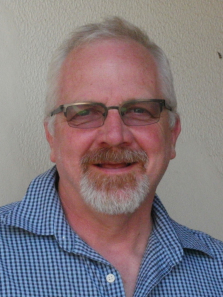
Fr Jonathan Proctor
The other visitor was Fr Jonathan Proctor, who played a significant role in our joining the Orthodox Church in 1985-87. In 1968, as an Anglican theological student, I had discovered the writings of Fr Alexander Schmemann, which made most sense to me. For some years I rather naively hoped that the ecumenical movement would bring Anglicans and Orthodox closer together, but when it became clear that the gap was not narrowing but widening rapidly I went to see the local Orthodox priest, who, however, spoke only Greek. I wrote to Fr Alexander Schmemann to ask for his advice, only to discover that he had died two years previously. My letter was passed on to a South African student at St Vladimir’s Orthodox Seminary in New York, Jonathan Proctor, who wrote back to me and told me about an English-speaking Orthodox parish in Melrose, Johannesburg. A couple of years later Jonathan and his wife Vera came and spent a couple of years in Johannesburg, where we got to know them.
After ordination Fr Jonathan became a parish priest in St Paul, Minnesota in the USA, but he occasionally visits his family in South Africa, and so it was a great joy to see him again after nearly 20 years.


October 14, 2013
Baptism in Brixton
The Orthodox Church of St Nicholas of Japan in Brixton, Johannesburg, has been eclectic by its very nature. For a long time it was the only English-speaking Orthodox Church in Gauteng, and so drew people from all over the province and beyond. It has had “parishioners” from Limpopo and the Western Cape. When it began, it met in various venues around Johannesburg — St Matthew’s Anglican Hall in Fairmount, St Martin’s in the Veld Anglican chapel in Dunkeld, an old Russian Chapel in Yeoville, and finally landed in Brixton because the old Brixton Tabernacle was for sale — it formerly belonged to the Full Gospel Church.
So the parish could have had a home almost anywhere in central Gauteng. When the new temple was acquired, people came from all over to Brixton, and nobody came from the immediate neighbourhood. “Parish” was a bit of a misnomer. The English word “parishioner” comes from the Greek “pariki”, which can be translated directly into Afrikaans as “bywoners” — squatters, sharecroppers. In the New Testament, God’s people are described thus (Heb 11:13, II Pet 2.11), as “strangers and pilgrims”). But pariki means literally those “beside the house” — in other words, those who live around the temple. But St Nicholas parishioners did not. They came from elsewhere, almost anywhere but Brixton itself.
But having acquired a permanent home, we thought we should at least introduce ourselves to the neighbourhood, and invite them to join us. We printed 5000 pamphlets, giving a brief explanation of what the Orthodox Church was, and had them distributed as junk mail in Brixton and neighbouring suburbs — Crosby, Mayfair, Vrededorp, Auckland Park, Hurst Hill. At least when we did our weird processions round the block on Good Friday and Easter, people would know what was going on. Occasionally local people dropped in, but they usually dropped out again pretty quickly. There were a few Roman Catholics — there was not Roman Catholic Church nearby, so they came to St Nicholas, but then they moved away again.
But over the last couple of years, neighbourhood children have dropped in to the services more frequently.
Orthodox services are not “children’s services”. They are not “seeker sensitive”, as some say nowadays. They are not designed to attract adults, never mind children. They are really for the faithful. Indeed, at one point in the service the deacon says, “Depart catechumens, let all catechumens depart, let no catechumen remain” and the prayer that follows this is called “The First Prayer of the Faithful”. But still the children came… and went. Until now.
Yesterday we baptised David, the first person from the neighbourhood to be baptised.
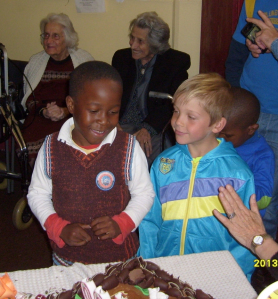
Buche Nnagie and Milosh Krunich
Onyebuchiuche Nnagie (known as Buche) is seven years old, and like other children in the neighbourhood, dropped in to St Nicholas. But, unlike some of the others, he made a friend — Milosh Krunich, also aged 7. Milosh wanted to be an altar boy in services, so Buche did too.
Other children came and went, but Buche stayed. He became a regular. So he was asked if he wanted to be baptised, and he did. But being so young, he needed the permission of his parents, and his parents, Ernest and Thembi Nnagie, agreed.
In being baptised, he could choose a Christian name, and he and his parents chose David. I looked up St David to see which one should be his name saint, and I had no idea there were so many saints named — four kings (of Israel, Wales and Georgia), and a couple of martyrs and teachers as well. St Gleb the passionbearer was named David in baptism.
Buche’s parents came to the baptism, and were greatly impressed. Some of his neighbourhood friends came as well. They come for the Liturgy, which, with Matins, lasts from 8:30 to 11:00, though they usually spend part of the time in Sunday School, This time they stuck around for the baptism, and several of them said they wanted to be baptised too.
And, quite independently of David and his family, we’ve had a couple of other people drop in from the neighbourhood. One of them, Jamie, was impressed by the prayers said at the blessing of the water for baptism. I said he should make sure not to miss the Theophany (Epiphany) service, where the blessing of water is central.
Orthodox baptism services are not for the faint-hearted. They begin with no fewer than four exorcisms, a renouncing of the devil, and an accepting of Christ. For those interested, the text of the baptism service is available for download here.
So Buche was baptised as David, and Milosh’s mother, Henriette, was his sponsor.

Buche is admitted as a catechumen
The priest prays:
In thy Name, O Lord of truth, and in the Name of thine Only-begotten son, and of thy Holy Spirit, I lay my hand upon they servant (name), who has been found worthy to flee unto thy holy Name, and to take refuge under the shelter of thy wings.
Remove far from him (her) his (her) former delusion, and fill him (her) with the faith, hope and love which are in thee; that he (she) may know that thou art the only true God, with thine Only-begotten Son, our Lord Jesus Christ and thy Holy Spirit.
Enable him (her) to walk in all thy commandments, and to fulfil those things which are well-pleasing unto thee, for if a man do those things, he shall find life in them.
Inscribe him (her) in thy Book of Life, and unite him (her) to the flock of thine inheritance. And may thy holy Name be glorified in him (her), together with that of thy beloved son our Lord Jesus Christ, and of thy life-creating Spirit.
Let thine eyes ever regard him (her) with mercy, and let thine ears attend unto the voice of his (her) supplication.
Make him (her) to rejoice in the works of his (her) hands, and in all his (her) generation; that he (she) may render praises unto thee, may sing, worship and glorify thy great and exalted Name always all the days of his (her) life.
For all the Powers of Heaven sing praises unto thee, and thine is the glory, of the Father, and of the Son and of the Holy Spirit, now and ever and unto ages of ages.
This is followed by the four exorcisms.
After the exorcisms, and the renunciation of the devil and turning to Christ, he is brought into the church to the font, where the water is blessed.

The blessing of the water
The priest blesses the water saying:
Great art thou, O Lord, and marvelous are thy works, and there is no word which suffices to hymn thy wonders. (three times)
For thou, of thine own good will, hast brought into being all things which before were not, and by thy might thou dost uphold creation, and by thy providence thou dost order the world. When thou hadst joined together the universe out of four elements, thou didst crown the circle of the year with four seasons. Before thee tremble all the Powers endowed with intelligence. The sun sings unto thee. The moon glorifies thee. The stars meet together before thy presence. The light obeys thee. The deeps tremble before thee. The water-springs are subject unto thee. Thou hast spread out the heavens like a curtain. Thou hast established the earth upon the waters. Thou hast set round about the sea barriers of sand. Thou hast shed abroad the air for breathing. The Angelic Powers serve thee. The Choirs of the Archangels fall down in adoration before thee. The many-eyed Cherubim and the six-winged Seraphim as they stand round about and fly, veil their faces in awe before thine ineffable glory. For thou, who art God inexpressible, existing uncreated before the ages, and ineffable didst descend upon earth, and didst take on the semblance of a servant, and was made in the likeness of man: for, because of the tender compassion of thy mercy, O Master, thou coudst not endure to behold mankind oppressed by the Devil; but thou didst come and didst save us. We confess thy grace. We proclaim thy Mercy. We conceal not thy gracious acts. Thou hast delivered the generation of our mortal nature. By thy birth thou didst sanctify a Virgin’s womb. All creation magnifies thee, who hast revealed thyself. For thou, O our God, has revealed thyself upon earth, and has dwelt among men. Thou didst hallow the streams of Jordan, sending down upon them from heaven thy Holy Spirit, and didst crush the heads of the dragons who lurked there.
Wherefore, O King who lovest mankind, come thou now and sanctify this water, by the indwelling of they Holy Spirit. (three times)
And grant unto it the grace of redemption, the blessing of Jordan. Make it the fountain of incorruption, the gift of sanctification, the remission of sins, the remedy of infirmities; the final destruction of demons, unassailable by hostile powers, filled with angelic might. Let those who would ensnare thy creature flee far from it. For we have called upon thy Name, O Lord, and it is wonderful, and glorious and awesome unto adversaries.

The priest blesses the Oil of Gladness, held by the deacon
The Oil of Gladness is blessed by the priest, and then some is poured into the baptismal water, while the rest is poured over the candidate for baptism. This is why Christians are called Christians — the name “Christians” means “oily ones”.

The newly-illumined servant of God David is dried off, chrismated, given clean white garments, and tonsured
He is also given a lighted candle as a symbol of the light of Christ. For the next forty days, when he bcomes to receive the Holy Communion, he will come holding the candle, and will be the first to receive communion.

The newly-illumined servant of God David
And after the baptism, he receives Holy Communion

The newly-illuminated servant of God David receives Holy Communion
David’s friends were very impressed, and several of them asked to be baptised too

David Nnagie with his family, sponsors and friends
Father Athanasius, the parish priest of St Nicholas, remarked that, as far as he knew, David was the first person from the Brixton neighbourhood to be baptised at St Nicholas, and hoped that he would be the first of many, and that the day would come when the priest of the parish would himself have roots in the local community.






